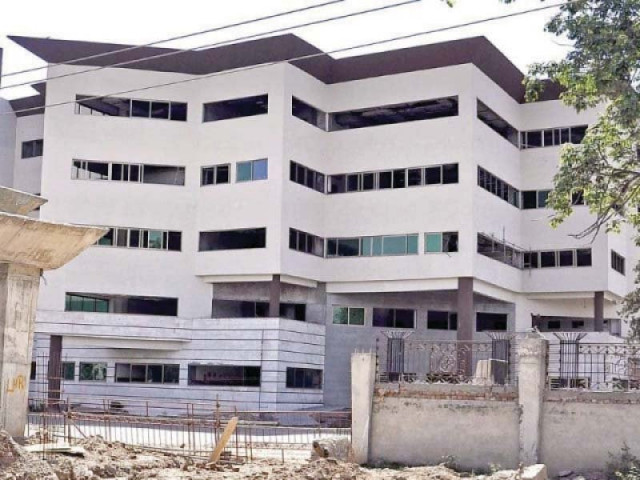Pindi to have two dedicated health facilities
Kidney and dialysis centre will cost Rs385 million

The Ministry of Health Punjab has approved two mega projects related to free treatment of kidney diseases and the free-of-cost provision of dialysis services.
Funds for both projects, estimated to cost Rs385 million, will be provided by Federal Minister for Interior Sheikh Rasheed Ahmad and Federal Parliamentary Secretary Sheikh Rashid Rafique from their respective member of National Assembly development funds.
The first renal and dialysis centre will be constructed at the Rawalpindi Institute of Urology (RIUT).
The hospital will have the capacity to admit up to 200 patients at a time and will cost approximately Rs350 million for the entire project, which includes funds of Rs140 million just for the building’s construction.
Tenders for the hospital in RIUT have already been issued and will be opened in the last week of the current month, while work will start in January 2022.
Orders for as many as 200 latest dialysis machines have also been placed.
Meanwhile, the second project will be established at the District Headquarters Hospital Rawalpindi at a cost of Rs35 million.
Under the project, an entirely separate ward with 20 beds—which can be extended to 25 beds—will be dedicated to dialysis procedures and treatment of kidney diseases.
A total of 20 dialysis machines will be installed in this project. Sheikh Rashid Rafique said that Rawalpindi has long been waiting for a well-equipped healthcare facility that deals exclusively with dialysis as well as patients suffering from renal ailments.
Read Progress on key RIUT project hits snags
He added that people from other districts of Rawalpindi division such as Jhelum, Attock, Chakwal and from Khyber Pakhtunkhwa as well as Azad Jammu and Kashmir also travel to the garrison city for treatment, which calls for an urgent resolution of the problem.
“To address this critical issue, we have finalised two important projects that have received approval as well,” said Rafique.
“Work on the dialysis unit at the DHQ Hospital is already under way and will be completed within a few weeks.”
The secretary further said that any medicines required during the procedures and treatments in these centres will also be provided free of charge.
“After working tirelessly for improving the education sector in the region, we are now focusing on resolving development issues related to health,” said Rafique.



















COMMENTS
Comments are moderated and generally will be posted if they are on-topic and not abusive.
For more information, please see our Comments FAQ